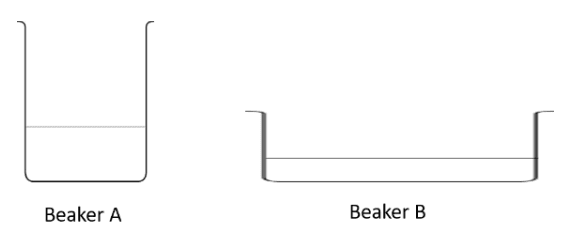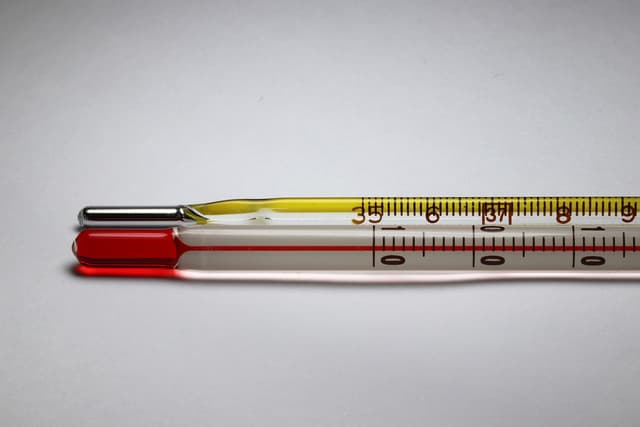Myths about teaching can hold you back
- Year 7
Changes of state: energy and evaporation
I can describe and explain what happens when a substance changes state and how evaporation occurs.
- Year 7
Changes of state: energy and evaporation
I can describe and explain what happens when a substance changes state and how evaporation occurs.
These resources were made for remote use during the pandemic, not classroom teaching.
Switch to our new teaching resources now - designed by teachers and leading subject experts, and tested in classrooms.
Lesson details
Key learning points
- States of matter can have differing amounts of energy.
- Solid states have the least energy, gas states have the most energy.
- A substance in its liquid state can evaporate at temperatures below its boiling point.
- The hotter the water, the more quickly it evaporates.
- Water evaporates at temperatures that are lower than 100℃.
Keywords
Energy - Particles gain or lose energy when a substance changes state.
Evaporation - When a particle of a substance in the liquid state at the surface, has enough energy to change to the gas state and mix with air.
Evaporation rate - The evaporation rate is a measure of how quickly a substance evaporates.
Alcohol - Ethanol is a type of alcohol that has a higher evaporation rate than water.
Common misconception
Evaporation only occurs above the boiling point of a substance.
Give examples of substances other than water.
To help you plan your year 7 science lesson on: Changes of state: energy and evaporation, download all teaching resources for free and adapt to suit your pupils' needs...
To help you plan your year 7 science lesson on: Changes of state: energy and evaporation, download all teaching resources for free and adapt to suit your pupils' needs.
The starter quiz will activate and check your pupils' prior knowledge, with versions available both with and without answers in PDF format.
We use learning cycles to break down learning into key concepts or ideas linked to the learning outcome. Each learning cycle features explanations with checks for understanding and practice tasks with feedback. All of this is found in our slide decks, ready for you to download and edit. The practice tasks are also available as printable worksheets and some lessons have additional materials with extra material you might need for teaching the lesson.
The assessment exit quiz will test your pupils' understanding of the key learning points.
Our video is a tool for planning, showing how other teachers might teach the lesson, offering helpful tips, modelled explanations and inspiration for your own delivery in the classroom. Plus, you can set it as homework or revision for pupils and keep their learning on track by sharing an online pupil version of this lesson.
Explore more key stage 3 science lessons from the Solid, liquid, gas states and changes of state unit, dive into the full secondary science curriculum, or learn more about lesson planning.

Licence
Prior knowledge starter quiz
6 Questions
Q1.Which state of matter has no fixed shape, but a definite volume and can flow?

Q2.The point is the temperature at which a liquid turns into a gas.
Q3.Which state has the weakest forces of attraction between the particles?
Q4.Which state of matter undergoes a change in volume when compressed?
Q5.The two beakers below, with the same volume of water in each, were left in a room. Select all the true statements about Beaker A.

Q6.It is winter. The bird bath in the school garden needs refilling. Some primary children discuss whether evaporation could be the reason that the bird bath is empty. Which reason is correct?

Assessment exit quiz
6 Questions
Q1.Order the states of matter from lowest to highest energy.
Q2.Water can evaporate at temperatures lower than 100℃.
Q3.What happens to the energy of a substance when it changes from a gas to a liquid?
Q4.When changing from the solid to liquid to gas state, is required to overcome forces of attraction between particles.
Q5.Which two substances are commonly used in thermometers and can change state at fairly low temperatures?



